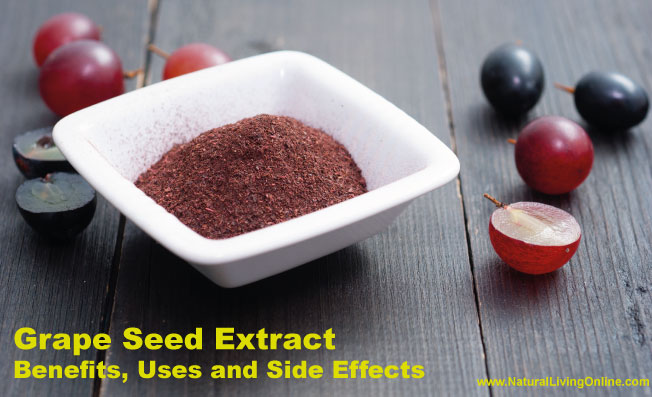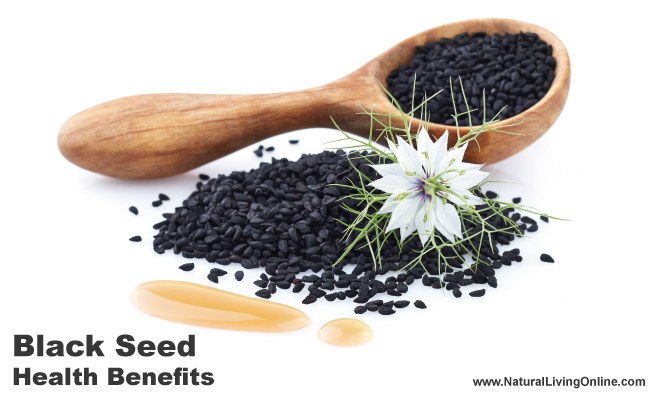Chia seeds are small, black seeds that come from the Salvia hispanica plant, which is native to Mexico and Central America. They have been a staple food of the ancient Maya and Aztec civilizations, and have recently gained popularity as a superfood due to their high nutritional value and numerous health benefits. In this blog, we will explore the various medicinal properties and health benefits of chia seeds, as well as tips for incorporating them into your diet.
Botanical Profile
Botanical Name: Salvia hispanica Common Names: Chia seeds
Plant Family: Lamiaceae (mint family)
Countries of origin: Mexico and Central America
Parts Used as medicine: The seeds
Therapeutic Properties: Chia seeds are known for their high fiber and protein content, as well as their rich source of omega-3 fatty acids. They have anti-inflammatory and antioxidant properties, and may help improve blood sugar control, lower cholesterol, and support weight loss.
Contraindications: Chia seeds may cause allergic reactions in some individuals, and may interact with certain medications such as blood thinners and blood pressure medications. They may also pose a choking risk if not properly hydrated and consumed whole.
Nutritional Profile
One of the most notable characteristics of chia seeds is their high fiber content. Just one ounce (28 grams) of chia seeds contains 11 grams of fiber, which is about a third of the daily recommended intake for adults. This high fiber content makes chia seeds an excellent choice for improving digestion and supporting weight loss.
In addition to fiber, chia seeds are also a rich source of protein and omega-3 fatty acids. They contain about 4 grams of protein per ounce, which is similar to other plant-based protein sources like nuts and beans. Omega-3 fatty acids are important for heart health and brain function, and chia seeds contain about 5 grams of these beneficial fats per ounce.
Despite their high nutrient content, chia seeds are low in calories and carbs, making them a great option for those following a low-calorie or low-carb diet. They are also a good source of vitamins and minerals, including calcium, phosphorus, and manganese.
Phytochemical profile
The phytochemical profile of chia seeds includes a range of beneficial compounds, including:
- Fiber: Chia seeds are a rich source of both soluble and insoluble fiber. Soluble fiber helps to lower cholesterol and improve blood sugar control, while insoluble fiber helps to improve digestion and prevent constipation.
- Protein: Chia seeds contain about 4 grams of protein per ounce, which is similar to other plant-based protein sources such as nuts and beans.
- Omega-3 fatty acids: Chia seeds are a rich source of omega-3 fatty acids, which are important for heart health and brain function. They contain about 5 grams of omega-3s per ounce.
- Antioxidants: Chia seeds contain a variety of antioxidants, including flavonoids and phenolic acids, which help to protect the body from damage caused by free radicals and reduce inflammation.
- Vitamins and minerals: Chia seeds are a good source of a range of vitamins and minerals, including calcium, phosphorus, and manganese.
- Saponins: Chia seeds contain saponins, which are plant compounds that have a soapy texture and may have anti-inflammatory and immune-boosting properties.
- Stigmasterol: Chia seeds contain stigmasterol, a plant sterol that may have cholesterol-lowering effects.
- Tryptophan: Chia seeds contain tryptophan, an amino acid that is important for brain function and may have a positive effect on mood.
- Lignans: Chia seeds contain lignans, which are plant compounds that have been shown to have estrogen-like effects and may have a positive impact on bone health and the risk of certain cancers.
Overall, the phytochemical profile of chia seeds is characterized by a range of beneficial compounds that contribute to their medicinal properties and health benefits.
Medicinal Properties
Chia seeds have a number of medicinal properties that contribute to their health benefits.
One of the primary medicinal properties of chia seeds is their anti-inflammatory effects. Inflammation is a normal immune response to injury or infection, but chronic inflammation has been linked to a variety of diseases, including heart disease, diabetes, and cancer. Chia seeds contain antioxidants, such as flavonoids and phenolic acids, which may help reduce inflammation in the body.
In addition to their anti-inflammatory effects, chia seeds also have antioxidant properties. Antioxidants help protect the body from damage caused by free radicals, which are unstable molecules that can harm cells and contribute to the development of chronic diseases. The antioxidants in chia seeds may help protect against chronic diseases such as heart disease and cancer.
Chia seeds may also have a positive effect on blood sugar control. Some research suggests that chia seeds may help improve insulin sensitivity and reduce blood sugar levels in people with type 2 diabetes.
There is also evidence that chia seeds may help lower cholesterol levels. One study found that consuming chia seeds daily for 12 weeks significantly reduced total cholesterol and LDL (bad) cholesterol in people with high cholesterol.
Finally, chia seeds may support weight loss by helping people feel full and satisfied after eating. This is due to their high fiber and protein content, which can help reduce appetite and promote feelings of fullness.
Health Benefits of Chia Seeds
The medicinal properties of chia seeds contribute to a number of health benefits.
One of the primary health benefits of chia seeds is their ability to improve digestive health. The high fiber content of chia seeds helps to bulk up the stools, making them easier to pass and reducing the risk of constipation. Chia seeds may also help to balance the good bacteria in the gut, which is important for overall health.
Heart health
The omega-3 fatty acids in chia seeds have been shown to reduce inflammation and lower the risk of heart disease. In addition, the antioxidants in chia seeds may help to protect against heart disease by reducing oxidative stress.
Bone health
The high calcium content of chia seeds makes them a good choice for people who are looking to improve their bone density. Calcium is important for building and maintaining strong bones, and it may also help to reduce the risk of osteoporosis.
Skin health
The antioxidants in chia seeds may help to protect the skin from damage caused by free radicals, which can lead to the development of wrinkles and other signs of aging. In addition, the omega-3 fatty acids in chia seeds may help to reduce inflammation and improve the overall health of the skin.
Mental health
The omega-3 fatty acids in chia seeds have been shown to have a positive effect on brain health and may help to improve mood and reduce the risk of depression and anxiety.
How to Use Chia Seeds
There are many ways to incorporate chia seeds into your diet. Here are a few tips for getting started:
- Add chia seeds to smoothies: Chia seeds can be easily added to smoothies as a way to boost the fiber and protein content. Simply add a tablespoon or two of chia seeds to your favorite smoothie recipe and blend as usual.
- Use chia seeds as an egg replacement: Chia seeds can be used as a binding agent in recipes that call for eggs. Simply mix together 1 tablespoon of chia seeds with 3 tablespoons of water and let the mixture sit for a few minutes until it becomes thick and gel-like. This can then be used in place of 1 egg in a recipe.
- Sprinkle chia seeds on top of oatmeal or yogurt: Chia seeds can be easily added to oatmeal or yogurt as a topping. Simply sprinkle a tablespoon or two of chia seeds on top and enjoy.
- Use chia seeds in baked goods: Chia seeds can be used as a replacement for eggs in many baked goods recipes. Simply mix together 1 tablespoon of chia seeds with 3 tablespoons of water and let the mixture sit for a few minutes until it becomes thick and gel-like. This can then be used in place of 1 egg in a recipe.
Precautions and Potential Side Effects
While chia seeds are generally considered safe to consume, there are a few precautions to keep in mind.
- Allergic reactions: Some people may be allergic to chia seeds. Symptoms of an allergic reaction may include rash, itching, difficulty breathing, and swelling of the face, lips, tongue, or throat. If you experience any of these symptoms after consuming chia seeds, seek medical attention immediately.
- Interactions with medications: Chia seeds may interact with certain medications, such as blood thinners and blood pressure medications. If you are taking any medications, it is important to consult with your healthcare provider before adding chia seeds to your diet.
- Potential for choking: If consumed whole and not properly hydrated, chia seeds can absorb a large amount of water and expand in the throat, potentially causing choking. It is important to drink plenty of water when consuming chia seeds and to chew them thoroughly before swallowing.
Conclusion
In conclusion, chia seeds are a nutritious and versatile superfood with numerous medicinal properties and health benefits. They are high in fiber, protein, and omega-3 fatty acids, and have been shown to have anti-inflammatory and antioxidant effects, as well as the potential to improve blood sugar control, lower cholesterol, and support weight loss. Chia seeds can be easily incorporated into a variety of dishes, including smoothies, baked goods, and oatmeal, and can be a great addition to a healthy diet. However, it is important to be aware of potential allergic reactions, interactions with medications, and the potential for choking if not properly hydrated. Overall, chia seeds are a nutritious and tasty addition to any diet and can offer numerous health benefits.
References:
- Chia Seeds (Salvia Hispanica L.): An Overview—Phytochemical Profile, Isolation Methods, and Application
- Nutritional and therapeutic perspectives of Chia (Salvia hispanica L.): a review
- The Chemical Composition and Nutritional Value of Chia Seeds—Current State of Knowledge
- Chia seeds (Salvia hispanica): health promoting properties and therapeutic applications – a review
- Long-Term Dietary Intake of Chia Seed Is Associated with Increased Bone Mineral Content and Improved Hepatic and Intestinal Morphology in Sprague-Dawley Rats
This website does not provide medical advice.
All information provided on this website, and on associated social media networks, including but not limited to texts, images, and numbers are for general information purpose only. It is not intended as medical advice and it does not include all possible precautions, side effects, or interactions that may occur. Neither NaturalLivingOnline.com nor its author/founder take responsibility for how you use this information. Statements contained on NaturalLivingOnline.com have not been evaluated by the FDA. You should conduct thorough research via multiple sources and consult your physician or qualified doctor before using any essential oil or herbal remedy. Information on NaturalLivingOnline.com must not be relied upon for medical, legal, financial or other decisions.













